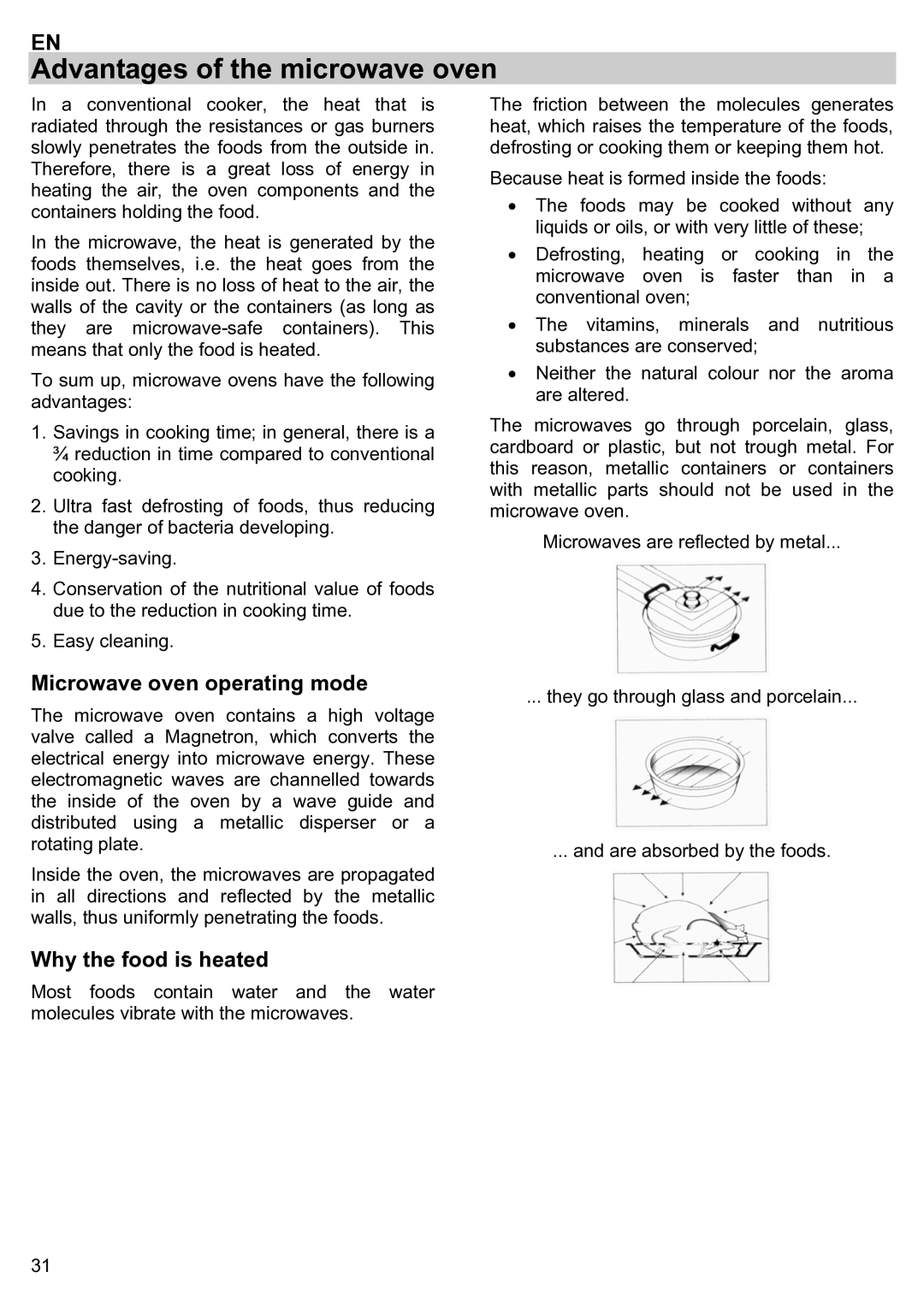
EN
Advantages of the microwave oven
In a conventional cooker, the heat that is radiated through the resistances or gas burners slowly penetrates the foods from the outside in. Therefore, there is a great loss of energy in heating the air, the oven components and the containers holding the food.
In the microwave, the heat is generated by the foods themselves, i.e. the heat goes from the inside out. There is no loss of heat to the air, the walls of the cavity or the containers (as long as they are
To sum up, microwave ovens have the following advantages:
1.Savings in cooking time; in general, there is a ¾ reduction in time compared to conventional cooking.
2.Ultra fast defrosting of foods, thus reducing the danger of bacteria developing.
3.
4.Conservation of the nutritional value of foods due to the reduction in cooking time.
5.Easy cleaning.
Microwave oven operating mode
The microwave oven contains a high voltage valve called a Magnetron, which converts the electrical energy into microwave energy. These electromagnetic waves are channelled towards the inside of the oven by a wave guide and distributed using a metallic disperser or a rotating plate.
Inside the oven, the microwaves are propagated in all directions and reflected by the metallic walls, thus uniformly penetrating the foods.
Why the food is heated
Most foods contain water and the water molecules vibrate with the microwaves.
The friction between the molecules generates heat, which raises the temperature of the foods, defrosting or cooking them or keeping them hot.
Because heat is formed inside the foods:
•The foods may be cooked without any liquids or oils, or with very little of these;
•Defrosting, heating or cooking in the microwave oven is faster than in a conventional oven;
•The vitamins, minerals and nutritious substances are conserved;
•Neither the natural colour nor the aroma are altered.
The microwaves go through porcelain, glass, cardboard or plastic, but not trough metal. For this reason, metallic containers or containers with metallic parts should not be used in the microwave oven.
Microwaves are reflected by metal...
... they go through glass and porcelain...
... and are absorbed by the foods.
31
